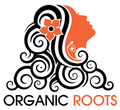The best of the finest ways to color hair, get rid of obstinate grays, improve scalp health, and make your hair more manageable is with henna powder.
Yet, not every henna dye is the same.
Henna is a plant-based dye that is grown naturally all over the world since it is a dye. Henna's quality so largely depends on the place you purchase it from, the kind, your purpose, and even the package.
Here is a list of key considerations you should make if you've just learned about henna and are unsure how to pick the best henna powder.
Factors to consider before purchasing henna powder
Your initial motivation should always be clear. Why are you interested in henna? for body art, is it? Do you wish to have your hair colored? Do you intend to use it to color your sheets? The selection procedure will be simple once you have a clear motive.
Pure & Organic:
Organic henna is among the best and highest-quality types of henna. As the name suggests, this henna powder is grown organically in a safe place, then packaged and shipped safely to keep it as fresh as possible. Also, it doesn't contain any chemicals, pesticides, or other substances of any kind. You can use it on your skin and hair because it is the purest kind of henna available.
Body Art Level:
The henna in question was created especially for use in henna tattoos and as a paste on the body. Henna that is used to make tattoos on the body usually has chemicals like PPD that shouldn't be put on the skin. Make sure the henna you purchase for body art has only pure, natural components.
Natural Henna
This is what you purchase in the market; no manufacturer's packaging or branding is present. Freshly powdered henna, which used to only be available in the Asian subcontinent, is now also sold in the United States, the United Kingdom, and Canada. In triple-sifted sacks, some manufacturers also rebrand fresh henna. Check the expiration date on the label of the box when purchasing fresh henna.
Types Of Natural Heena
Black Henna
Although you shouldn't use black henna on your skin or hair, it is still sold in the market and is frequently used to dye clothes. In comparison to natural henna, black henna is a good agent for having the greatest color consistency because it incorporates chemicals.
Brown Henna:
This is henna that we refer to as being pure and organic. Brown henna is safe to use on both skin and hair. One of the purest henna powders available on the market is this one.
Henna Paste:
You can also get henna in the form of a paste to use on your skin or hair. Henna paste does, however, have a shorter shelf life than common hair colors. The good news is that it has already been blended and produced for immediate usage. If you have an event coming up and are short on time, you should use henna paste.
After you know the basics, let's look at the different kinds of henna powder you can buy today.
Kinds of Henna Powder
Henna Indian powder
Nothing tops the organicrootpk Indian henna powder when it comes to superior henna. The powder stands out from the competition due to its freshness and brown color. The powder comes in a variety of container options and provides the greatest level of darkness possible in the selection.
It is advised to let the henna in for at least 8 to 12 hours or overnight when using it on hair. Other herbal powders like indigo, amla, reetha, shikakai, and others can be combined with Indian henna powder.
Henna leaf powder is known as Rajasthani Henna
Henna powder that is USDA organic and of the best and highest quality available. This henna powder, which comes from the Indian state of Rajasthan, is rich in red tones and produces a deeper orange color. Both henna body art and henna hair dye can be made with this top-notch henna.
Rajasthani henna, on the other hand, takes some time to develop. It can take up to 3 hours for the skin to form and 4–5 hours for the hair to develop. Some henna artists left their henna mixture out overnight, which gave the design the next day a reddish-burgundy color.
Follow the packing instructions in the application instructions to get the most out of Rajasthani henna.
Henna from Yemen
A good alternative is Yemeni henna powder, but it is hard to find on the market. Yemen's Sana area is where Yemeni henna is produced. The application process for the dye takes 3–4 hours, and the dye develops over 10–12 hours. Yemeni henna was particularly well-known for its qualities as a material for body art.
Organicrootspk provides the high-quality natural henna powder of all kind at resonable prices.Vist their website for more details of organic products.



